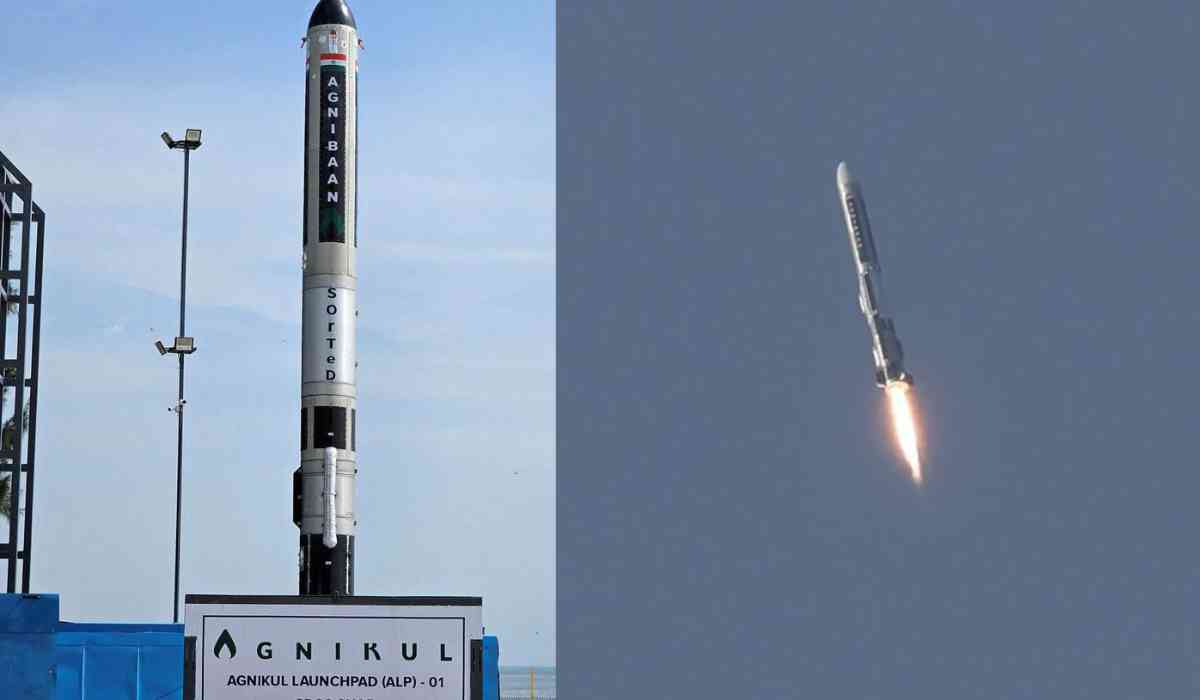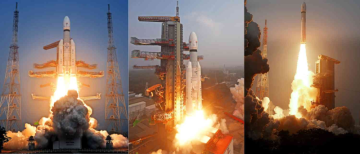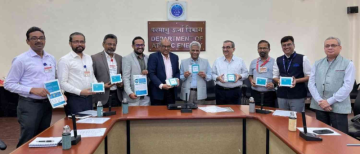Indian space startup AgniKul Cosmos successfully launched its first sub-orbital test vehicle Agnibaan Sub Orbital Technology Demonstrator (SOrTeD) on Thursday, powered by the world’s first single-piece 3D-printed rocket engine after several previous postponed attempts.
Agnibaan SOrTeD (Sub-Orbital Technology Demonstrator) lifted off at 7.15 am from the Satish Dhawan Space Centre in Sriharikota. It was supposed to launch on April 7 but had to postpone it 129 seconds before the lift-off due to some technical glitches.
Congrats @AgnikulCosmos !!!@IITMadras incubated Agnikul successfully completes world’s 1st rocket launch from India’s 1st & only private launchpad within SDSC-SHAR. It's the world’s 1st flight with single-piece 3D printed rocket engine. @satchakra_iitm @isro @EduMinOfIndia pic.twitter.com/2pGsqL69xA— IIT Madras (@iitmadras) May 30, 2024
Agnibaan SOrTeD
Agnibaan SOrTeD is India's first launch from a private launchpad. It is also the world's first single-piece 3D printed engine that is designed and manufactured in India, and the first rocket launch powered by a semi-cryogenic engine.
Humbled to announce the successful completion of our first flight - Mission 01 of Agnibaan SOrTeD - from our own and India’s first & only private Launchpad within SDSC-SHAR at Sriharikota. All the mission objectives of this controlled vertical ascent flight were met and… pic.twitter.com/9icDOWjdVC— AgniKul Cosmos (@AgnikulCosmos) May 30, 2024
Agnibaan is a two-stage rocket and can lift up to 300 kg to a height of 700 km. Agnibaan runs on both gas and liquid fuel (kerosene/liquid oxygen).
According to the company, it can access both high- and low-inclination orbits and is fully mobile, allowing it to access over ten launch ports.
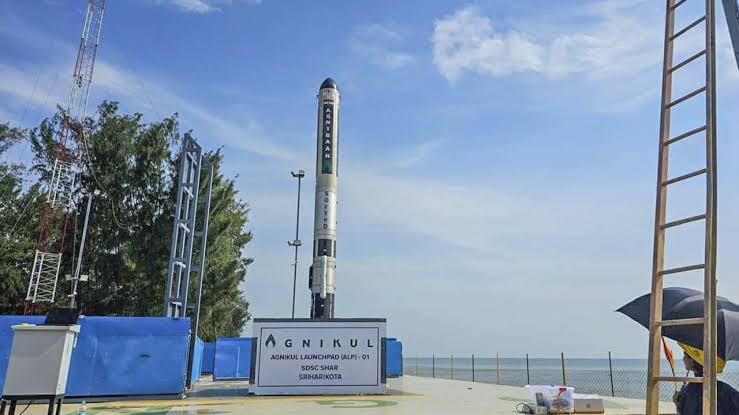
Objective
Test flight objectives include showcasing in-house and domestic technologies, collecting critical flight data, and guaranteeing optimal system performance for AgniKul's orbital launch vehicle, the 'Agnibaan'.
The goal of the mission was to ascend to a height of roughly eight kilometres before plunging into the ocean.
The 3D-printed manufacturing process would reduce the time and cost of vehicle assembly during launch. The company wants to provide small satellites with reasonably priced launch services.
About AgniKul
AgniKul, an IIT Madras-incubated startup was founded by Moin SPM, Satya Chakravarth, and Srinath Ravichandran in 2017. It operates India's first private launchpad and mission control center. ISRO runs all the other launchpads.
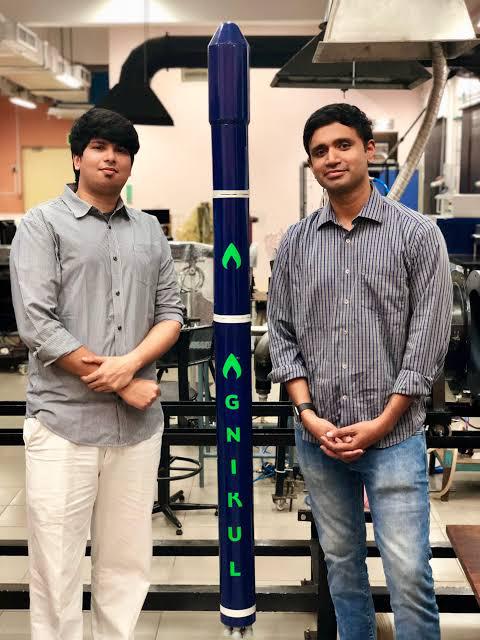
“This is the culmination of 1000s of hours of reviews and hard work by the team. We are blessed to have had the opportunity and the full support of IN-SPACe and ISRO to design and build original space worthy hardware in India,” said Srinath Ravichandran, co-founder and CEO of Agnikul Cosmos.
“Agnikul”, the name comes from the Sanskrit and Hindi words for fire became the first company in the country to sign an agreement with ISRO under the IN-SPACe initiative to have access to the space agency’s expertise and its facilities to build Agnibaan in December 2020.
The Indian Space Research Organisation (ISRO) also congratulated Agnikul in a post on X, saying it is “a major milestone, as the first-ever controlled flight of a semi-cryogenic liquid engine realized through additive manufacturing”.
The founding advisor of Agnikul Cosmos and faculty member of the Department of Aerospace Engineering at IIT Madras, Prof. Satyanarayanan R. Chakravarthy, co-founder and CEO of Agnikul Cosmos, co-founder and COO of Agnikul Cosmos, Saraniya Periaswamy, vehicle director of Agnibaan SOrTeD, and Umamaheswari. K., project director of Mission-01 and Agnibaan SOrTeD, were among the core team members of AgniKul at the launch.
“We are proud to present India’s first semi-cryo rocket engine, which is also the world’s most integrated single shot 3D printed piece. It signals the ability to rapidly assemble rockets that is unparalleled,” said Prof Satyanarayanan R Chakravarthy, founding advisor Agnikul Cosmos and head of National Centre for Combustion Research and Development, IIT Madras.
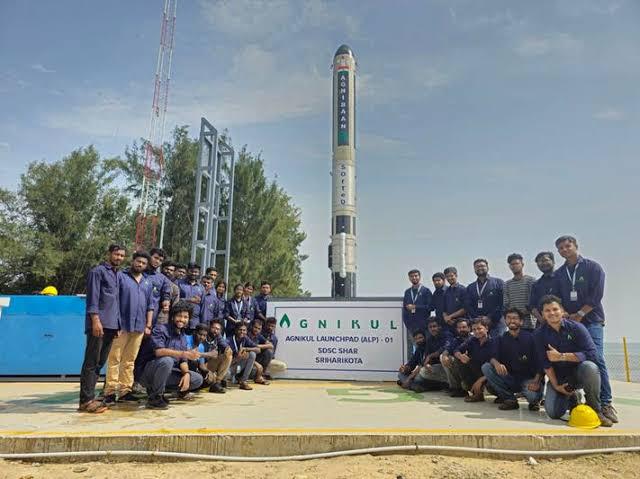
In India, AgniKul has now become the second company to launch a rocket, Skyroot was the first to launch a privately developed rocket in 2022.
AgniKul plans to launch an orbital mission by the end of the 2025 fiscal year, and is working with customers on flights beginning regularly from CY 2025.
ⒸCopyright 2024. All Rights Reserved Powered by Vygr Media.

